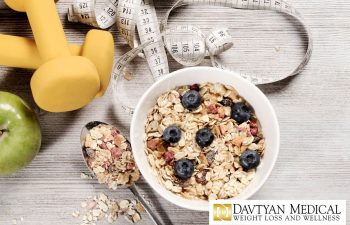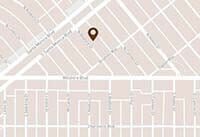
Bariatric surgery is not the be-all and end-all of weight loss. A good way to look at it is that weight loss surgery is the first step towards hopefully significant and sustainable weight loss. But to sustain the reduction in weight as a result of any surgical procedure, your lifestyle, eating habits, and food choices need to undergo changes as well.
In preparation for the procedure, you should gradually start doing bits and pieces of lifestyle modification. And more importantly, your selection of food choices should help your stomach, body, and mindset adapt to the bigger changes that you need to make after undergoing weight loss surgery.
If you want to make your life easier after your weight-loss procedure, you should make sure to eat fiber-rich food. You won’t have a choice anyway, since your doctor or dietitian will prescribe a strict diet that you need to follow after. Read on to find out why a fiber-rich one, and for examples of these kinds of food!
Why Should You Eat Fiber-Rich Food After Bariatric Surgery?
Remember why you underwent bariatric surgery in the first place?
If your answer is because you want to lose weight, then that’s correct! But why fiber?
Well, for people who are trying to lose weight or are conscious about maintaining a healthy diet, consuming high-fiber food is beneficial. Not only are high-fiber foods such as fruits and vegetables generally low in calories, but the fiber they contain will actually make your digestion slower. The effect of this is that you feel full longer. And that means you will have an easier time maintaining your new lifestyle of weighing less and feeling healthier!
Also, foods that are high in fiber take longer to chew compared to other kinds of foods. That also means you put less food in your mouth, and that also means you get time to realize that you are actually full, even if you have only eaten a small portion.
The benefits of fiber-rich food are not just for our digestive system. High fiber diets have been linked to lower blood cholesterol levels, better blood sugar results, and regular bowel movements. Simply put, more fiber in our diet means better overall health.
What Are Examples Of Fiber-Rich Foods?
So spoiler alert: there is no fiber in meat, dairy, or sugar. But it’s okay because you’re supposed to be avoiding a lot of these foods anyway, especially immediately after surgery. And if you think that fiber-rich foods are limited, you’re actually mistaken. Check out our list below!
- Avocados
- Did you know a whole avocado provides our bodies with nearly a fifth of the daily recommended fiber intake? And aside from being fiber-rich, avocados have a high potassium content and lots of healthy fats. Avocados in our diet also contribute to lower cholesterol.
- Berries
- Having berries in your diet is a flavorful addition to a post-surgery meal plan. You not only get lots of fiber (a cup of fresh blackberries contains an amazing 7.6 grams of fiber!), but you also get plenty of potassium and magnesium.
- Black Beans
- A cup of cooked black beans contains 15 grams of fiber. Black beans are legumes that have a healthy amount of protein and fiber that helps regulate our digestive function.
- Figs
- Figs contain fiber that contributes to the prevention of heart diseases such as high blood pressure and elevated cholesterol. Each cup of figs contains 14.6 grams of fiber. That’s a significant amount of fiber that our bodies need!
- Flax Seeds
- Flax seeds are versatile ingredients that can be added to yogurt, baked goods, oats, and other dishes. Not only are they yummy, but an ounce of flax seeds contains 8 grams of fiber! Plus, these seeds are inexpensive and can therefore be part of your daily meal plan.
- Green Peas
- Green peas are another versatile food that can easily be added to your diet. A cup of cooked green peas contains 8.6 grams of fiber. And another benefit is that the same amount of green peas provide nearly all of your recommended daily allowance of Vitamin C.
- Lentils
- Lentils contain both soluble and insoluble fiber. Soluble fiber is good for our health and blood sugar while insoluble fiber promotes bowel movement. A cup of cooked lentil contains 10.4 grams of fiber.
- Squash
- A good source of soluble fiber, acorn squash is a good addition to your diet. It can serve as a substitute for potatoes. With squash, you can make a tasty soup that is both heart-healthy and filling. Including a cup of squash in your meal gives you 9 grams of fiber.
A Word Of Caution About Fiber-Rich Foods
While adding fiber to your post-bariatric surgery diet is definitely beneficial and nutritious, there are certain types of fiber-rich foods that you should avoid. Some of these include celery, oranges, pineapple, corn, asparagus, and sweet potatoes, especially if you had lap band surgery. Why, you ask? Well, these particular foods may get caught in the band leading to your stomach and get stuck, which wouldn’t be very comfortable for you. You might have to go back to the surgery center to have this problem fixed.
Always consult with your doctor or dietitian for their recommended post-bariatric surgery diet. And strictly follow the diet plan that they have provided for you for your post-bariatric recovery and care. Be open with them for any questions or concerns you may have regarding your post-bariatric surgery diet. This is your health and life we are talking about! We do not advise taking any chances with your health.
Also, to make sure that your weight loss journey is successful and sustainable, you need to eat and drink these fiber-rich foods slowly. It should take you at least an hour to consume your food and drink especially when you’re fresh from your bariatric surgery procedure. This gives you more than enough time to chew your food well to facilitate digestion. Again, ask your doctor or nutritionist for best practices regarding eating.
For A Better Diet And A Very Successful Bariatric Surgery Procedure, Visit Weight Loss Surgery Of Los Angeles
Adding fiber-rich food to your post-weight loss surgery diet is a great way to eat well and be healthy. This, along with other modifications in your diet, eating habits, food choices, level of physical activity, mindset, and other lifestyle changes bodes well for you in your quest to lose weight and keep them off permanently.
Of course, before the diet, you would still need a successful bariatric surgery procedure. And in the LA area, there’s no one better than us at Weight Loss Surgery Center of Los Angeles. Not only are we experts in various surgical weight loss procedures, but we also understand that the changes you are making are not easy. Our team led by Dr. Davtyan (a weight-loss surgery patient himself) has extensive experience in helping individuals in their weight loss journey.
That’s why if you need someone to talk to about a post-bariatric surgery diet, we have made it easy for you to reach out to us. We look forward to hearing from you as soon as possible.
Posted on behalf of Dr. David G. Davtyan MD, FACS, FICS





